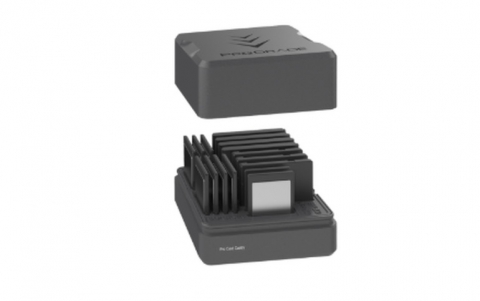
SafeAudio raises distortion fear
"...Anti-piracy compact discs that cannot be copied by a computer have gone on sale in California. The first CD title has already sold 100,000 copies, but it is causing concern among audio experts because they fear that the music may be audibly distorted. The SafeAudio system was developed by Macrovision. The technology stops people "ripping" music CDs to create high-quality digital copies on a computer hard disc or for downloading to a portable player.
The system also prevents people creating digital files from the CD to swap over the internet or copying music onto a blank CD - although it would still be possible to make a poor quality copy by converting the analogue output into digital code. SafeAudio works by degrading the digital code. The CD will still play on an ordinary player or through a computer's speakers or headphones. But it cannot be copied. Macrovision says that the changes made to the music are not discernible.
The patents say the system deliberately gives some of the digital code on the CD "grossly erroneous values", adding bursts of hiss to the audio signal. In addition, the error-correction codes on the CD, which would normally correct such errors, are distorted. So error correction fails, leaving tiny gaps in the music. When this happens, a consumer CD player bridges the gaps. It looks at the music on either side of the gap and interpolates a replacement section. A computer does the same when playing CDs for listening. But the computer's CD drive cannot repair the digital data going to the hard disc. So the hard disc copies nothing, or a nasty noise. TTR says the repairs made by a music CD player are not audible..." NULL
The system also prevents people creating digital files from the CD to swap over the internet or copying music onto a blank CD - although it would still be possible to make a poor quality copy by converting the analogue output into digital code. SafeAudio works by degrading the digital code. The CD will still play on an ordinary player or through a computer's speakers or headphones. But it cannot be copied. Macrovision says that the changes made to the music are not discernible.
The patents say the system deliberately gives some of the digital code on the CD "grossly erroneous values", adding bursts of hiss to the audio signal. In addition, the error-correction codes on the CD, which would normally correct such errors, are distorted. So error correction fails, leaving tiny gaps in the music. When this happens, a consumer CD player bridges the gaps. It looks at the music on either side of the gap and interpolates a replacement section. A computer does the same when playing CDs for listening. But the computer's CD drive cannot repair the digital data going to the hard disc. So the hard disc copies nothing, or a nasty noise. TTR says the repairs made by a music CD player are not audible..." NULL















